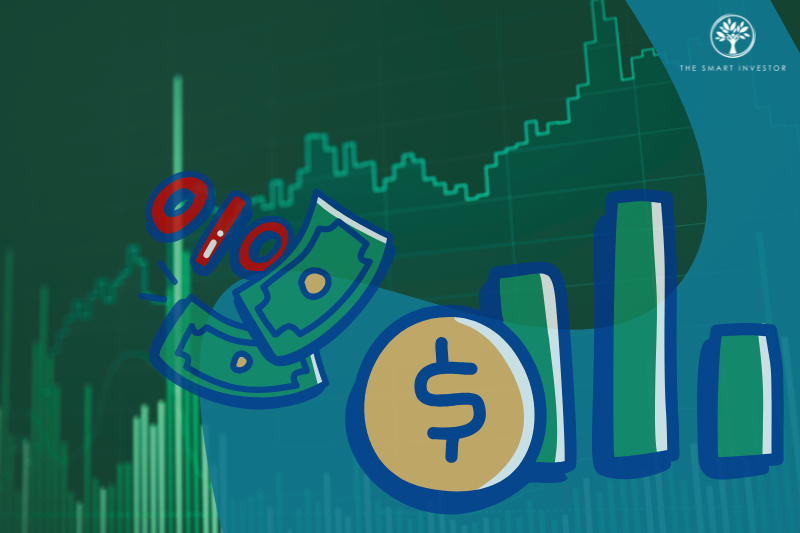There can be many good reasons why you shouldn’t sell your stocks.
At The Smart Investor, we prefer not to sell.
My colleague, David Kuo, goes a step further: he has never sold a stock that he has bought.
His philosophy? Once you buy quality, you hold forever.
Me?
I’ve sold my stocks before.
And with the Straits Times Index (SGX: ^STI) hitting new highs two Thursday ago (14 August) and the NASDAQ Composite Index (INDEXNASDAQ: .IXIC) less than 2% from its all-time record, I’m going to tell you something that might make David spill his morning tea: sometimes, selling is exactly the right move.
It’s not because “the market is too high” – that’s not a good reason.
But every now and then, there are valid reasons why you should sell.
Today, I’ll share the two that actually matter – and expose a terrible one that many use.
David, if you’re reading this, maybe hold off on your second cup of tea first.
Reason #1: Your life needs the money more than the market does
Now, before David storms out, let me start with the most important reason – one that even he may accept.
We love investing in stocks at The Smart Investor.
But let’s not lose sight of why we invest in the first place.
Investing is a vehicle to get you to where you want to go.
Nothing more, nothing less.
Take Nvidia (NASDAQ: NVDA).
It’s up nearly 2,600% since September 2018.
Background: Nvidia was our stock pick back in September 2018 before we started The Smart Investor.
Could shares keep rising? Maybe.
But if those gains have already secured your daughter’s university education or funded your early retirement – why are you still holding?
Remember: you’re successful when you achieve your own investment goals.
Not because you beat the market.
Not because you held longer than your kopitiam buddy.
But because investing did what it was supposed to do: fund a better life.
If selling stocks achieves your life goal, that’s success – regardless of what happens to the share price afterward.
Reason #2: Your position has become a mental burden
Check your phone.
Go ahead, I’ll wait.
Did your heart rate spike when you saw your stock price notification?
That’s your body telling you something your mind won’t admit: you own too much of a stock.
When a single position starts controlling your mood, it’s already inflicting a mental tax – regardless of the price you paid.
I learned it the hard way when I first started investing.
I fell into the trap of thinking I need to invest more money just to offset the high trading fees (fees used to be S$25 per trade, younglings!).
But cold math does not capture the psychological burden a bigger position imposes.
The moment I trimmed back on my initial buys, my decision-making across the entire portfolio improved.
Turns out, fear is contagious – one oversized position infects everything else.
Your portfolio should work for you, not the other way around.
If you’re checking prices every five minutes, that’s not investing – that’s a hostage situation.
Get Smart: A terrible reason many use to sell
“What goes up must come down.”
This popular saying has probably cost investors more money than any market crash in history.
Here’s what our portfolios didn’t sell last week: Singapore Exchange (SGX: S68), which has delivered almost 93% returns for The Smart Dividend Portfolio.
Or Meta Platforms (NASDAQ: META), a stock which has nearly doubled for The Smart All Stars Portfolio.
Why didn’t the portfolios take profits at these all-time highs?
Because your stocks don’t know the STI hit a record.
They don’t check market indices before deciding whether to serve customers, generate cash, or grow their business. They just keep doing what good businesses do.
Also, think about it: if you sell because you’re worried markets will fall, you’ve just exchanged one problem for another. The relief of selling will be immediately replaced by a new anxiety – when exactly do I get back in?
What if markets rise another 20%?
Do you keep waiting? Or do you admit defeat and buy back higher?
These aren’t rhetorical questions.
They’re the mental torture of every investor who sold because markets felt “too high.”
The difference is this: sell for the right reasons – life goals, peace of mind, or permanent business damage.
Not because of a saying that belongs on a demotivational poster, not in your investment strategy.
Wish you could overhear how experienced investors think? That’s what Get Smart feels like. Reading calm, thoughtful commentary from people who study the markets closely and care about growing wealth sensibly. Click here to subscribe to our weekly newsletter for free now!
Follow us on Facebook, Instagram and Telegram for the latest investing news and analyses!
Disclosure: Chin Hui Leong owns shares of DBS Group, Meta Platforms, Singapore Exchange, and Visa.





